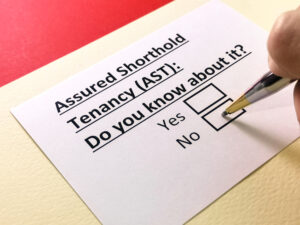Tenant fees have been eliminated by the government following several years of planning and consideration. Through the Tenant Fees Act, landlords and letting agents are prohibited from charging excessive fees for renting out properties, and all deposits are capped.
When does the Tenant Fees Act take effect?
New tenancies will be subject to the regulations beginning June 1, 2019. Any fees your landlord or letting agents charge you outside of the above list are prohibited if you sign a private tenancy agreement, student lease, or license to occupy a private property after this date.
which means landlords and agents can charge fees such as administration, inventory reports, and renewals.
The new regulations will take effect on June 1st, 2020, regardless of when a private tenancy started.
What are the letting agent and landlord fees that are being banned?
Tenants are currently paying for some letting agent services, although they largely benefit the landlord.
Previously lax regulations have led to many different names for these:
- Tenancy renewal fee
- Check-in / check-out fee
- Administration fee
- Tenancy inventory fee
- Tenant background check / Tenancy referencing
- Right to rent check fee
- Application fee
- Guarantor background check / Guarantor referencing
- Deposit protection fee
Fees for all of these activities will be abolished on June 1, 2019, meaning that landlords and agents cannot require tenants to pay or contribute to the completion of activities. However, agents can still ask landlords to cover the expenses.
There will be some legal charges where the tenant violates the tenancy agreement or does not adhere to their obligations.
In the event that you have been charged illegal fees
For those landlords and letting agents who have collected a payment from you that is not listed at the top of the page, the government suggests the following action plan:
- Please read – Tenant Fees Act 2019: Guidance for tenants. Read and understand the new regulations to understand your rights.
- Write to your landlord and letting agent and request that the money be returned to you. The link above has a template for the letter you should send to your landlord and agent.
- Involve the landlord’s or letting agent’s redress schemes or voluntary organizations via letter. They’ll assist you and act as mediators.
- Get in touch with your local council and ask for assistance. It has a department that enforces the law and defends your rights as a consumer.
- As a last resort, you can seek justice in court. Tenants have the most access to the First-tier Tribunal, which typically offers a simplified procedure you can follow without a lawyer. You should obtain assistance and guidance from your local council when using the First-tier Tribunal.
What should I do if I have a complaint against my letting agent?
It’s a legal requirement for all letting agents to register with one of three property redress schemes. By law, the correct scheme must be prominently displayed on their website.
Contacting the redress scheme and asking for help to resolve the issue is the first step to making a complaint against your letting agent. You can ask them to check the legality of the fees you’re being charged or have been charged.
Communication with the company should help you get their willful compliance through the redress scheme. Our article ‘A Guide To Complaints about Letting Agents’ provides more information on the property redress scheme.
Please contact your local council if no informal resolution can be reached. You will be directed to the appropriate department that deals with letting agent fees, usually Trading Standards.
Then you will receive instructions on how to pursue justice and recover unjustly collected fees and deposits from your letting agent.
How do I file a complaint against my landlord?
Mandatory redress schemes do not require landlords to participate. Some of them, however, belong to the Residential Landlord Association, the National Landlord Association, or other similar organizations.
- National Landlord Association – NLA
- Residential Landlord Association – RLA
- Housing Ombudsman Service – HOS
You can contact such an organization when you can prove their members have violated the code of conduct, they work by, as they will generally assist you.
Otherwise, you should contact your local council for assistance.
The only time you should turn to the court is if all other options have failed. Before you file a lawsuit, you should also seek professional advice. You may lose your case if you fail to prepare for court.
Check out our dedicated guide – Complaints against landlords (Put link of article here) for more information
The new Section 21 rules
As a result of the new regulation, landlords have to follow a new rule when using Section 21 Notice to Quit against tenants. If your landlord has collected illegal fees, charges, or excessive deposits that are not on the list, they cannot serve you a Section 21 notice.
Due to this, your landlord cannot evict you for seeking justice. After reimbursing all unjustly collected fees and deposits, a landlord can regain the right to use Section 21 notice.
Section 21 Notice to Quit regulations remain in effect. Here is our guide to Section 21 Notice to Quit. (Put link of article here)
Penalties for not conforming to the Tenant Fees Act 2019
Tenant Fees Act 2019 fines landlords and letting agents £5,000 for each violation. If they commit a second offence, they can face a financial penalty of up to £30,000. Tenant deposits and unjustly collected fees are immediately refunded.
Consumer Rights Act 2015 also imposes a fine of £5,000 on agents who are not part of a redress scheme.
Renters whose landlord or letting agent is taking money that isn’t legally theirs are advised to gather all available documents and proof by including:
- Tenancy agreements, student lease agreements, and other forms of contracts
- Supporting documents, addendums, etc.
- Payment receipts, invoices, and bank statements
- Email, letters, text messages – communication with your landlord or agent
In case your case needs to be proven, those documents will be needed.
As a result, if you complain to the council, for example, you run the risk of the landlord evicting you at the end of the tenancy. You should seek alternative accommodation before the end of your tenancy if your landlord is unwilling to make repairs.
Disclaimer
The purpose of this article is to provide guidance. The information provided should be used for research purposes, and not as a basis for bringing legal action.
No legal advice is provided by The Tenants Hub, and The Tenants Hub’s content does not establish a client-solicitor working relationship.
All tenants are advised to form respectful relationships with their landlords and letting agents and seek a peaceful resolution whenever problems arise with their rental homes.


